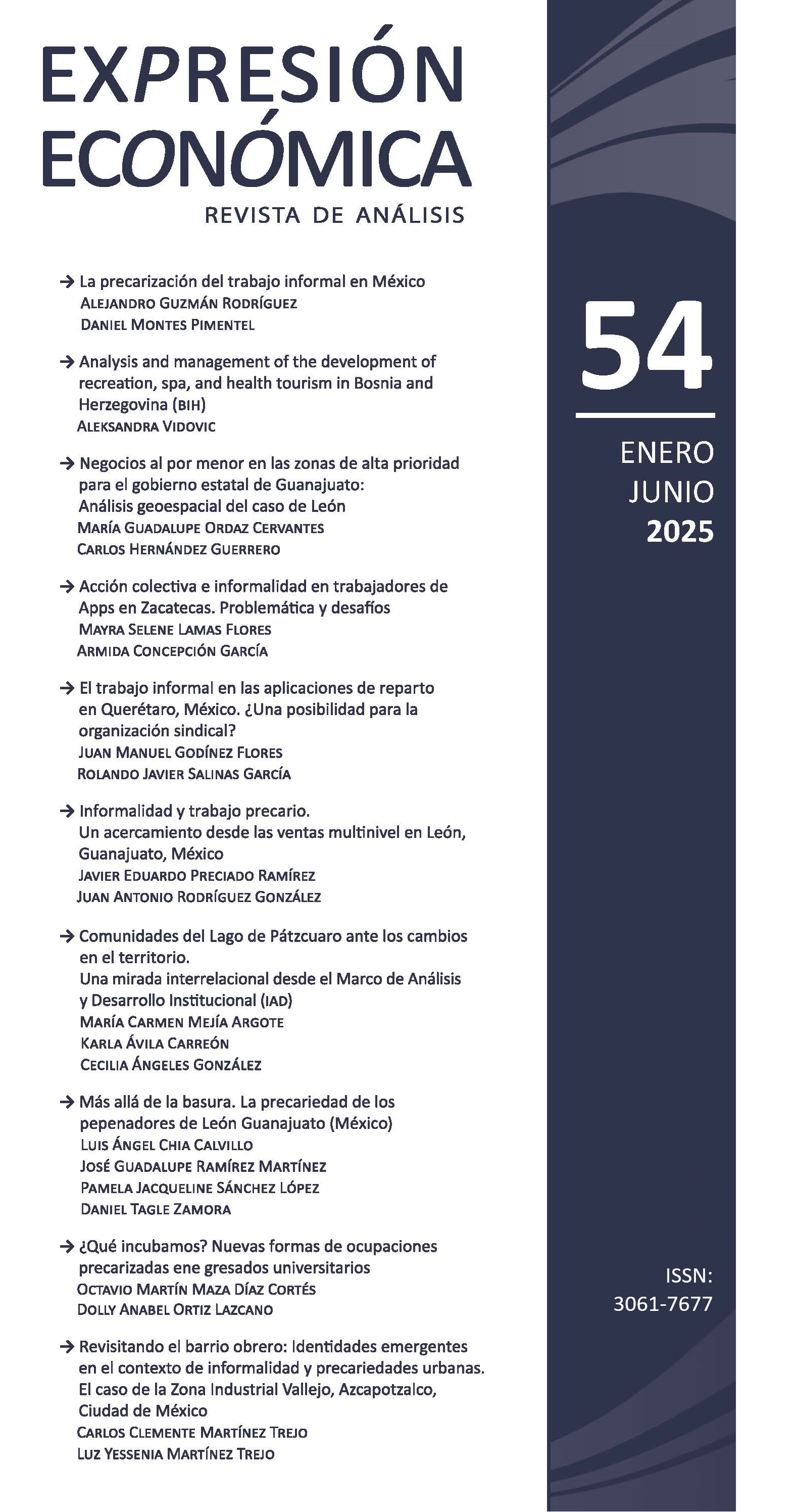Collective action and informality in Apps workers in Zacatecas. Issues and challenges
DOI:
https://doi.org/10.32870/eera.vi54.1203Keywords:
platforms, organization, collective action, regulation, informalityAbstract
The regulation of work in digital platforms is one of the pending issues in nation-states of the global south where different factors play against such objective. Mexico is one of these countries and stands out for being one of the regions where digital work platforms such as Uber has one of its largest markets worldwide. However, the regulatory initiatives that have been presented before the Congress of the Union have been affected by the lack of interest of drivers and consequently the absence of organization and mobilization to promote them. According to a case study conducted among Uber and Didi drivers in the state of Zacatecas, it is shown that this situation is because the labor relationship designed by the platform discourages behaviors that favor organization, as well as the multiplicity of interests that inhibit the collective action necessary to promote any regulatory framework. Meanwhile, the segment of the population that works in these companies faces informality with strenuous and self-imposed working hours, in order to meet the needs that are not covered by the labor rights that are denied to them by the State and capital.
Downloads
Published
Issue
Section
License
Copyright (c) 2024 Expresión Económica. Revista de análisis

This work is licensed under a Creative Commons Attribution-NonCommercial-NoDerivatives 4.0 International License.






